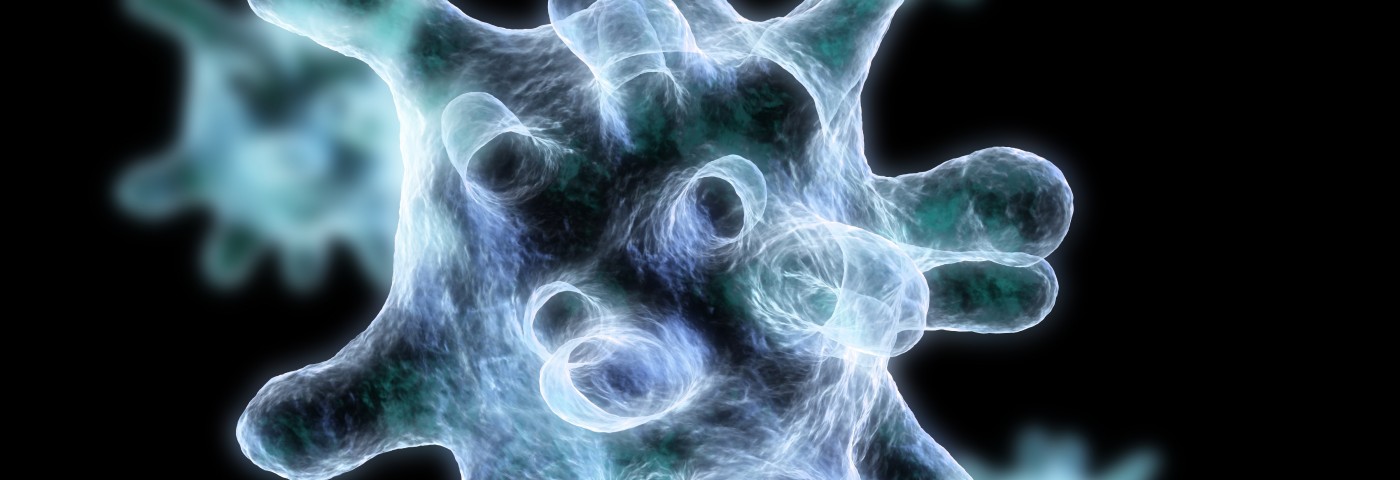Researchers at the University of Alabama at Birmingham (UAB) published a new report linking macrophages to pulmonary fibrosis (PF). Macrophages are cells that engulf toxins and harmful molecules, but in pulmonary fibrosis, alveolar (lung) macrophages may cause damage through cellular signaling pathways that include transforming growth factor TFG-β1 in the lung.
The research could provide clues and targets for treating the disease.
The report, titled “Macrophage Akt1 Kinase-Mediated Mitophagy Modulates Apoptosis Resistance and Pulmonary Fibrosis,“ appeared in the journal Immunity.
Idiopathic pulmonary fibrosis (IPF) refers to a thickening and scarring of the lungs caused by unknown factors. The disease results in difficulty breathing, and there is no cure. Understanding the factors that lead to scarring is critical for developing treatments for IPF.
Alveolar macrophages are large white blood cells that are part of the lung immune system. They can induce diseases by initiating a misdirected immune response, and by producing harmful reactive oxygen species (ROS) as well as TGF-β1.
In the new report, UAB researchers studied either alveolar macrophages from mice with bleomycin-induced lung damage, or human alveolar macrophages taken from people with IPF.
The team demonstrated that overall, TGF-β1 activates an enzyme called Akt1 kinase, leading to mitophagy. Mitophagy refers to the degradation of mitochondria — the energy-producing powerhouses of cells. Mitophagy is intended to remove defective mitochondria, but could be misdirected as part of an autoimmune response, contributing to disease such as IPF.
Researchers also found that the alveolar macrophages are the main producers of TGF-β1 in the lung during this destructive process.
Human alveolar macrophages had increased TGF-β1 gene expression compared with normal controls, while deleting the TGF-β1 gene in mice diminished pulmonary fibrosis in the mouse model. Deleting Akt1 in mouse alveolar macrophages blocked mitophagy and lowered the levels of TGF-β1.
A. Brent Carter, M.D., professor in the Division of Pulmonary, Allergy, and Critical Care Medicine, UAB Department of Medicine, led the research effort.
“The biggest surprise was something that intuitively makes no sense: We show that mitophagy is required for TGF-β1 production,” Carter said in a press release. Mitophagy had not previously been linked as a critical trigger for increasing TGF-β1 levels.
IPF is a serious and potentially fatal disease. The current study suggests new potential treatment targets, specifically TGF-β1, Akt1, as well as the inhibition of mitophagy. Targeting these specific and important processes may ultimately aid in the prevention of fibrosis and lung disease.

